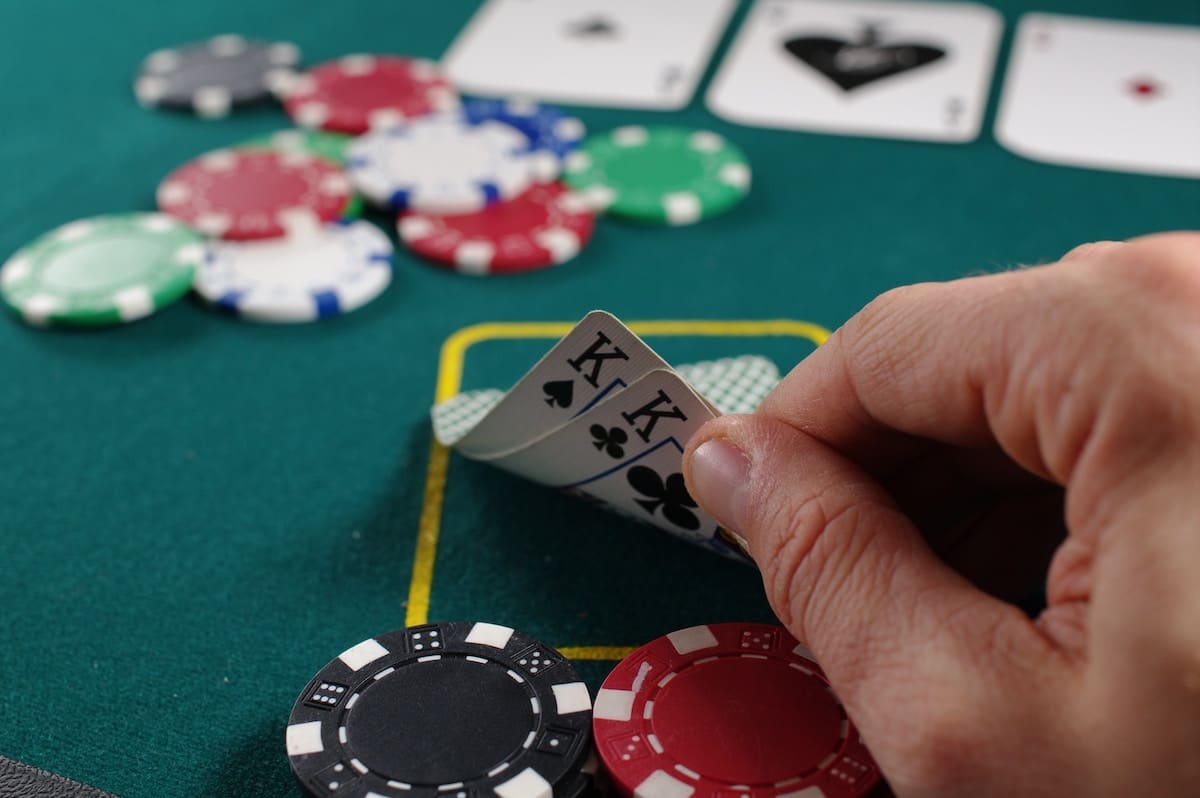Table of Contents
Every good poker player understands that luck is merely one aspect of the world’s favorite card game. Despite its simple ruleset, poker is a complex game that combines a high skill ceiling with masterful strategy. While luck definitely has its part to play, improving your playing style through experience is crucial to achieving greater success.
With time and practice, you can make better decisions and avoid common mistakes. You’ll learn how to anticipate your opponent’s moves and manage your betting habits effectively. Eventually, with enough experience, you can stay fully focused throughout any game, giving you a much-needed competitive edge at the table.
To ease you in and get you off to the best possible start, we’ve compiled four of the most crucial tips for improving your poker skills for life. These tips cover everything you need to know to become a better player. So, if you’re ready to grow your skills and gain experience at the table, read on to find the top four tips to take your poker game to the next level.

1. Practice makes perfect
One of the most important tips for improving at poker is to practice regularly. Like any other learned skill, practice makes perfect and all you really need is a willingness to invest your time and energy. If you keep growing your skills and master the basics of the game, you can move on to advanced strategies that less experienced opponents won’t see coming.
That being said, there’s no point in practicing if you don’t learn something valuable. Take the time to review your play and analyze your decisions, as learning from your mistakes is just as important as practicing itself.
Practice at different intensity levels to keep yourself on your toes, and don’t be afraid to challenge yourself by playing against tougher opponents. This can be intimidating for new players, but it’s the fastest way to learn new strategies and improve your skills and the lessons you learn will likely be invaluable in the long run.
2. Become a bookworm
Our second tip is to study the nuances of poker as you would a school or college subject. Poker contains a wide range of strategies, theories, and variations. Learning about these various aspects of the game will allow you to make better, more informed decisions when the chips are down.
Fortunately, there are several beneficial ways to study poker, from reading books and articles to watching live streams of the best pro players. To get the maximum benefit from these resources, focus on areas of play where you need the most improvement, whether it’s understanding hand rankings, learning advanced strategies, or improving your bluffing skill.
If you’re serious about poker as a profession, you can even hire a coach or take courses to improve. Ultimately, studying will teach you how to anticipate your opponent’s moves, and you may even develop your own worthwhile counter-strategies before too long.

3. Manage your bankroll
Bankroll management is an essential skill for any poker player. Disciplined betting ensures that you don’t risk more money than you can afford to lose, and efficient use of your funds allows you to make the most of your bankroll in any game.
One of the key principles of bankroll management is to set aside a specific amount of money and never go past that amount. That may sound simple, but you would be surprised at how often players give in to temptation or take risky shortcuts to victory.
For greater control of your finances, track your wins and losses and adjust your bankroll accordingly. For example, if you’re on a losing streak, you could take a break or lower your stakes until you’re back in the black. Another way to avoid the red is to play the appropriate stakes for your skill level. Playing at higher stakes than you’re comfortable with can be disastrous for your bankroll, as the competition will be tougher, the risks are higher and you’re always playing at a disadvantage.
4. Learn to read people
Knowing what your opponent will do next gives you a major advantage at the poker table. That’s why misdirection is a core part of the game. Seeing as every player has their own unique playing style and behavioral quirks, the quickest way to get to know other players is by observing their behavior while they play.
Pay close attention when your opponents react to different situations, such as winning or losing a hand, and watch how they interact with other players during betting rounds. Depending on how aggressive or passive they are, you can effectively adjust your strategy to counter their bets and bluffs.
Always take note of the cards your opponents bet on and remember which hands they fold. This information will aid you in making better decisions, such as knowing when to call, raise, or fold. If you can track your opponents’ hands and take advantage of their weaknesses, you can exploit their playing style, avoid costly mistakes and of course, increase your chances of winning.
Feature Image Credit: Photo by Chris Liverani on Unsplash


